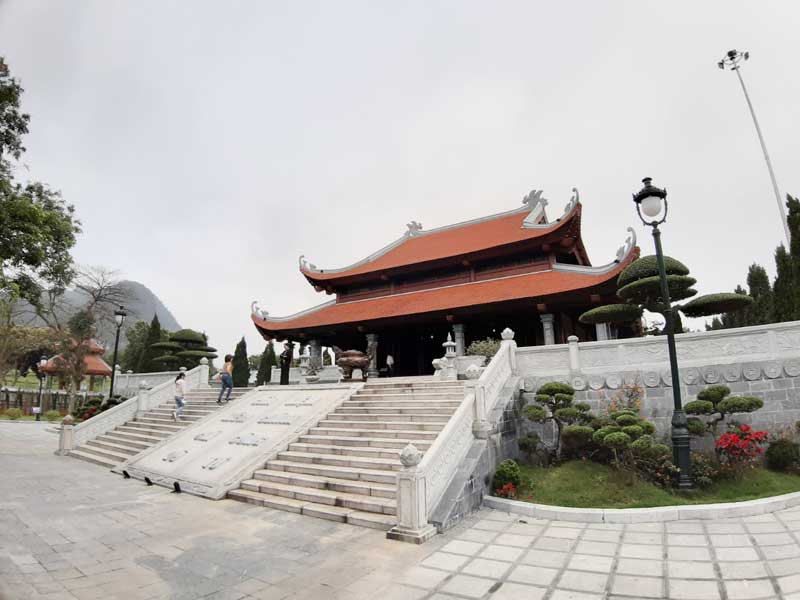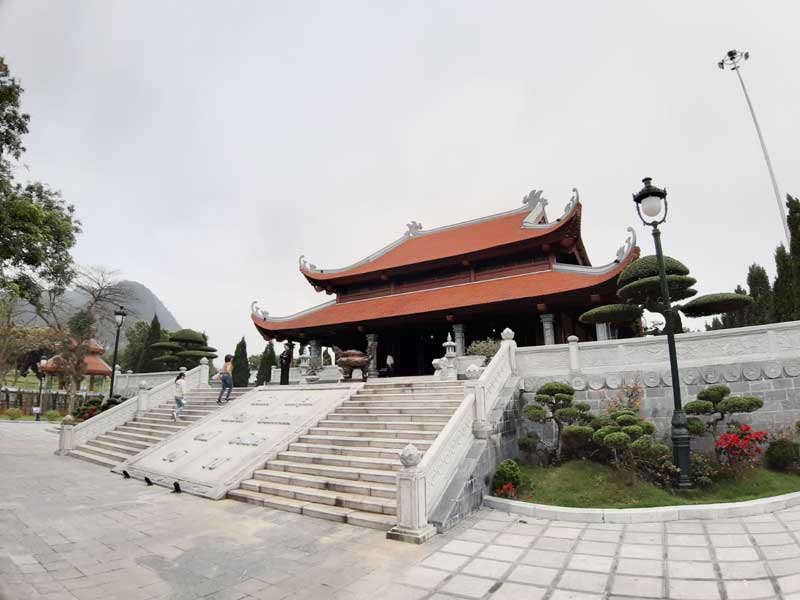
(HBO) - Lac Thuy district in the northwestern province of Hoa Binh boasts advantages and potential for developing diverse types of tourism. Located along the poetic Boi River with beautiful natural landscapes and majestic mountains, Lac Thuy has become attractive to visitors.

A commemorative house for people with meritorious services and
staff and workers of the first money printing
plantof the revolutionary government of Vietnam in Lac Thuy district.
La Thuy is home to six national relic sites, 12 provincial-level relics,
and 29 relic sites listed in the provincial People's Committee's inventory
decision. The district organizes 32 traditional festivals every year, with two district-level
ones.
The
money printing
plant in Lac Thuy, which is the first establishment of this kind in Vietnam, was recognized
as a national relic site in 2007 by the Ministry of Culture, Sports and
Tourism. The relic site has contributed to
educating young people about the revolutionary and patriotic tradition and sense
of national self-reliance.
Meanwhile, Niem mountain cave in Phu Thanh commune was recognized as a
national relic site in 2014.
Tourism and services have been identified as the important economic sectors in the district’s economic structure. Besides activities
to promote its potential, the local authority has completed a tourism development planning scheme, which focuses on improving the business and investment environment, and attracting investment resources to develop
tourism and services.
Since 2015, ten tourism infrastructure projects worth nearly 452 billion VND have been built in
the district, including important
works such as tourism infrastructure facilities in Lac Thuy district, a commemorative house for people with meritorious services and staff and workers of the money printing
plant, aschoolofsouthern ethniccadres, and a project to
upgrade Tien pagoda.
The district also welcomed tourism
development projects such as Dong Tam resort complex, Da Bac village
eco-tourism project, and Huong Binh cable cabin line in Phu Nghia commune,
among others.
Many tourist areas in the district have become attractive destinations
for domestic and foreign tourists, contributing to promoting the province’s tourism
industry.
Statistics show that the total number of travelers
visiting tourist destinations in the district reached over 3.37 million in the last five years,
mainly domestic tourists./.
A diverse chain of eco-tourism and resort destinations concentrated in Hoa Binh city and the districts of Tan Lac, Da Bac, and Luong Son… Along with the launch of several key high-quality resort tourism projects, these developments have reshaped the landscape and enhanced the appeal of Hoa Binh as a travel destination.
Boasting diverse terrain, a mild climate, and rich natural resources, Cao Phong district is increasingly asserting its place on Vietnam’s tourism map, attracting both domestic and foreign visitors. The district is renowned for its stunning landscapes, majestic mountains, a crystal-clear hydropower lake, and the unique cultural identity of local ethnic groups.
With its pristine landscapes, unique cultural heritage of Muong ethnic minority, and an expanding range of visitor experiences, Tan Lac district of Hoa Binh has fast become a captivating destination for both domestic and international tourists.
Until now, Sung village in Cao Son commune, Da Bac district remains the only Dao ethnic community in Hoa Binh province to develop a community-based tourism model. Beyond its untouched natural landscapes, cultural identity serves as the cornerstone attraction for visitors.
Alongside the diverse cultural identities of the Kinh, Muong, Tay, Thai, Dao, and Mong ethnic people, Hoa Binh province is also renowned as the "capital" of the northwestern Vietnamese cuisine, offering unique and distinctive dishes. At festivals, during Lunar New Year (Tet), or on significant family or community occasions, special dishes are prepared, leaving a lasting impression on visitors.
A Phong Linh (Yellow Tabebuia) flower garden in Thang village, Thach Yen commune, Cao Phong district is currently in full bloom, drawing a large number of visitors.



